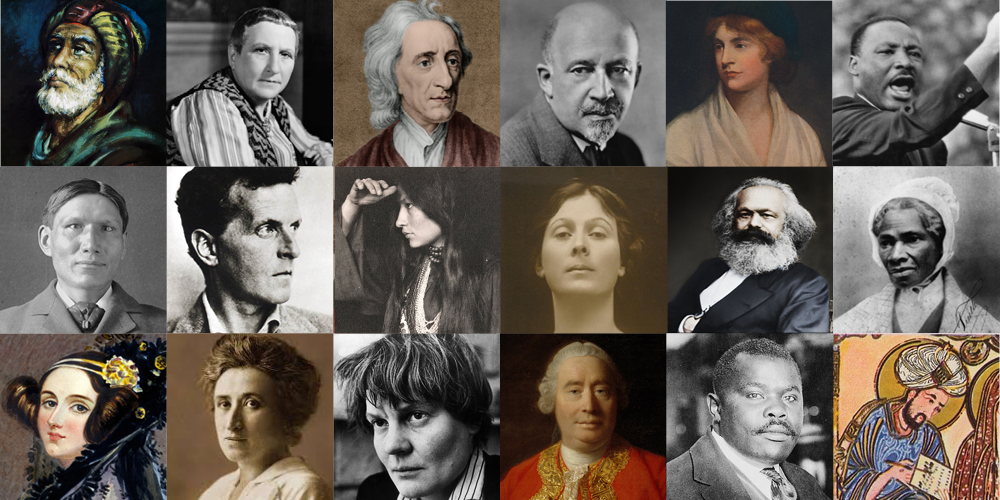

The Meaning of Philosophy and Its Core Concepts
Philosophy, which literally translates from Greek as “the love of wisdom,” is far more than an academic subject—it is a timeless human endeavor to wrestle with the deepest and most foundational questions of life. These questions span the nature of existence, the limits and structure of knowledge, our system of values, the mechanics of thought, and the complexities of language and mind.
Philosophy doesn’t offer final answers so much as it trains us to ask better questions. It challenges assumptions, uncovers hidden meanings, and asks us to face the world—and ourselves—with a kind of intellectual honesty. Whether pondering the concept of truth or contemplating the moral good, philosophy has always been at the heart of humanity’s greatest intellectual pursuits.
A Term With Ancient Roots
The word “philosophy” is credited to Pythagoras of Samos (570–495 BCE), a pre-Socratic Greek thinker whose contributions extended far beyond mathematics. Pythagoras wasn’t just calculating numbers—he was seeking harmony in the universe, attempting to understand life’s hidden logic. He laid the groundwork for what would become not just a subject, but an enduring tradition of rational exploration and critical inquiry.
(And for readers interested in how these thinkers literally shaped modern history, you might like THIS!)
At its core, philosophy uses a specific set of tools—logical argumentation, careful questioning, and methodical reasoning—to explore life's biggest ideas. These methods have shaped not only individual thought but entire civilizations. (Curious to get your critical-thinking on? Here's a good start!)
Philosophy’s classic questions include:
-
Can we ever truly know anything?
-
What is ultimately real?
-
How should one live?
-
Do we have free will?
-
What does it mean to be a good human being?
These aren't just abstractions for ivory towers—they’re real, concrete questions that shape our laws, our relationships, our self-understanding, and even how we treat one another. (But feel free to dive into them 101 style here)
Defining Philosophy Across Perspectives
Because philosophy is such a vast and evolving field, it resists a single definition. Yet across respected sources, some common threads emerge:
-
American Heritage Dictionary: A logical investigation into reality, knowledge, and values—not through experimentation, but reason.
-
Penguin English Dictionary: Exploring the ultimate nature of reality, knowledge, and goodness through human reason.
-
WordNet: Rational inquiry into questions of existence, knowledge, and ethics.
-
Kernerman English Multilingual Dictionary: Seeking truth, especially concerning human behavior and beliefs.
-
Microsoft Encarta Encyclopedia: A critical inquiry into fundamental principles.
-
Oxford Dictionary of Philosophy: The study of the most general and abstract features of existence—mind, matter, truth, and reason.
-
The Philosophy Pages: Deep reflection on the nature of the world, knowledge, and morality.
Originally: A Pursuit of All Knowledge
For the ancient Greeks, philosophy was not just about ethics or metaphysics—it was the pursuit of knowledge for its own sake. It wasn’t separated into disciplines like science or art. Back then, philosophy included everything from poetry and politics to astronomy and religion.
Examples include:
Over time, as fields like physics and psychology branched into distinct sciences, philosophy remained the crucible where foundational ideas were tested, and conceptual clarity was forged. Its questions became more abstract, yes—but also more essential.
Philosophy asks questions that often don’t lend themselves to experimentation, which is why its methods are more reflective, argumentative, and critical. Yet despite the lack of a lab coat, its impact has been profound. Some of the most groundbreaking ideas in politics, sociology, mathematics, science, and literature trace their roots back to philosophical thought.

To some, philosophy may sound like idle speculation. But throughout history, it has produced towering insights that changed how we think, govern, create, and coexist. Even if it can’t always hand us "the meaning of life on a platter," it gives us something just as important—a way to search for that meaning with integrity and clarity.
In fact, some thinkers would argue that "an unexamined life is not worth living." Whether or not you agree, it’s hard to deny that philosophy trains the mind like few other pursuits. Its lessons in clear thinking, nuanced argumentation, and ethical reasoning are tools that serve us far beyond academia.
Mapping the Landscape of Philosophy
Trying to organize philosophy into tidy categories is notoriously difficult—its reach is vast. But broadly speaking, the subject divides along geographic and cultural lines. The two major traditions are:
-
Western Philosophy (Greek, Roman, European, and Anglo-American)
The modern western world is still contributing to our understandings of life, even as recently as the 20th century. From large names like Bertrand Russell and Albert Camus, to the centuries-old stalwarts from Saint Thomas Aquinas or Seneca
-
Eastern Philosophy (Indian, Chinese, Japanese, etc.)
Generally speaking, the eastern philosophical leaders are more dated, but not less valid!
Look to time-tested works from Confucius, practical daily life guides from Miyamoto Musashi and, of course the more religiously inclined such as the original Buddha, or the Holy Hindu epic of the Bhagavad Ghita.
Some people also advocate for African Philosophy as a third pillar, representing rich and often overlooked traditions of metaphysical, ethical, and communal thought rooted in the African continent. These were largely either passed down through stories and metaphor, or written in iconographic languages (think Egyptian hieroglyphics)
Metaphysics: The Nature of Reality
At its deepest level, metaphysics is about reality itself. What exists? What does it mean to exist? What’s the structure beneath all things? Here's a
Metaphysical questions include:
-
Is there a God or higher being?
-
What is ultimate truth?
-
What is a person, and what makes someone the same person over time?
-
Is everything material, or is there something beyond the physical?
-
Does the mind exist separately from the body?
-
Are we truly free, or is everything determined?
-
How do causes lead to effects?
Metaphysics deals with the things we can’t measure easily—but still feel and think about every day.
Who contributed the most here?
Without doubt, Plato was the first and arguably most impactful, with Rene Descartes close behind. Check out the metaphysics or meditations on first philosophy
Epistemology: The Study of Knowledge
Epistemology asks: How do we know what we know? It dives into the nature, sources, and limits of knowledge.
Common epistemological questions include:
-
What is knowledge?
-
Can we truly know anything?
-
How do we justify our beliefs?
-
What distinguishes truth from opinion?
Who contributed the most here
In an age of misinformation, fake news, and AI hallucinations, epistemology is more relevant than ever. The likes of Hume and Immanuel Kant's works are a great place to start when evaluating 'proper knowledge'
Ethics: What Should We Do?
Ethics isn’t just about obeying laws or avoiding guilt. It’s the structured examination of right and wrong, good and evil.
Key questions in ethics:
-
What makes an action morally good or bad?
-
Is there a universal right, or is morality subjective?
-
How should we treat others?
-
What kind of person should I be?
Who contributed the most here
Ethics bridges personal choices and public values. It helps us wrestle with dilemmas that no rulebook can solve alone. We lean towards the ancient Chinese here- Lao Tzu's Tao Te Ching and THIS offering from Confucius both emphasize simple, 'right' living.
Logic: The Machinery of Thought
Logic is where philosophy becomes rigorous. It deals with structure, form, and argument quality. Not all arguments are created equal—and logic helps us sort the good from the flawed.
Logicians ask:
-
What makes an argument valid or invalid?
-
How can we distinguish sound reasoning from fallacy?
-
What rules govern rational thought?
Who contributed the most here ?
Whether you're debating politics or just making a decision, logic sharpens your tools.
A Legacy of Thinkers
Studying philosophy isn’t just about forming your own beliefs—it also involves engaging with the great minds of the past, whose ideas continue to shape modern thought.
Some of the most influential figures include:
| Plato | Locke | Marx |
| Aristotle | Hume | Mill |
| Aquinas | Kant | Wittgenstein |
| Descartes | Nietzsche | Sartre |
Each thinker brought new insights, new frameworks, and new critiques. Engaging with their ideas helps us better understand not only the world—but ourselves.
Philosophy in Practice: Beyond the Core
Philosophy doesn’t stay confined to classrooms or armchairs. Its questions spill into every aspect of life, which is why specialized branches have developed, such as:
| Philosophy of Law | Philosophy of Feminism |
| Philosophy of Religion | Philosophy of Science |
| Philosophy of Mind | Philosophy of Literature |
| Political Philosophy | Philosophy of the Arts |
| Philosophy of History | Philosophy of Language |
Whether analyzing the nature of justice, the role of consciousness, or the structure of beauty, these subfields show how philosophy lives inside our culture, our systems, and even our most personal experiences.
In the End, Philosophy Is About the Questions That Matter Most
At its best, philosophy doesn't just answer questions—it helps you ask the ones that change your life. It deepens your thinking, strengthens your empathy, and refines your ability to engage with complexity.
Whether you're wondering what’s real, what’s right, or what’s next—philosophy won’t hand you easy answers.
But it will teach you how to think, and in a world that often rushes toward simplicity, that may be the most valuable thing of all.




